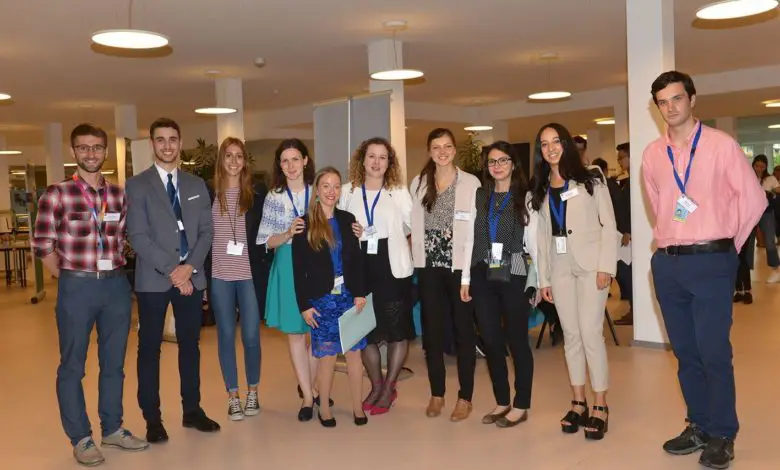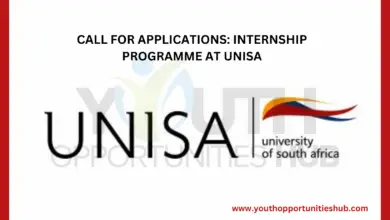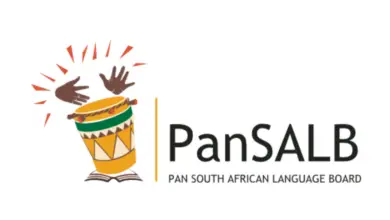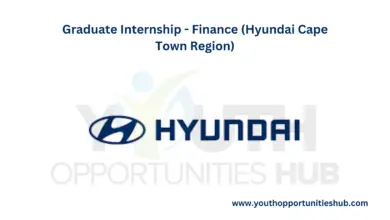EUROPEAN COMMISSION BLUE BOOK TRAINEESHIP PROGRAM 2021/2022

Apply for the European Commission Blue Book Traineeship Program for 2021/2022
Deadline: 31 August 2021
Who can apply?
Subject to eligibility criteria, the traineeship is open to all EU citizens, and limited non EU nationals (Africans, Asians and others).
Eligibility
The traineeship programme is open to university graduates who
- have completed a standard 3-year higher education degree (180 credits), corresponding to a complete Bachelor’s cycle, or equivalent. Only if you have a certificate or official confirmation from your university that you have such a degree will you be eligible to apply. We accept the following documents
- diplomas or certificates with final grades clearly indicated
- the Europass Diploma Supplement (if available)
- university transcripts
- have no prior work experience of any kind, in excess of 6 weeks in any EU institution, body or agency, delegation, with Members of the European Parliament (MEPs), or Advocates General at the Court of Justice of the European Union (EUCJ).
- have a very good knowledge of languages
- For the administrative traineeship – you must have a very good knowledge of two EU official languages, one of which must be a procedural language: English, French or German at C1 or C2 level as per the Common European Framework of Reference for Languages and a second one at B2 level at least as per the Common European Framework of Reference for Languages. For non-EU nationals, only one procedural language is required.
- For the translation traineeship in the Directorate-General for Translation (DGT) – you must be able to translate into your main/target language (normally your mother tongue), from two other official EU languages (‘source languages’*).
- your main/target language must be one of the official EU languages
- your first source language for translation must be a working language of the EU: English, French or German
- your second source language can be any of the official EU languages with at least B2-level proficiency
Application procedure
The application procedure consists of three steps: register on EU Login, complete the application form and submit.
Step 1: Register
Register on European Commission Authentication Service (EU Login) to begin your application.
If you are a new user
EU Login
- click here to create an account
- fill in the sign up form
- click ‘submit‘
- check your email account (including your spam folder) for confirmation
- in the email, follow the link to ‘create your password‘
- choose your password and submit it
- click ‘proceed‘ to the application form
- use either the email or your ECAS username to login afterwards. Candidates to EC traineeships and trainees cannot login using electronic IDs.
Issues? Check ‘Help for external users‘.
For all questions regarding your registration with EU Login (European Commission’s authentication service) see the EU Login FAQ page or contact [email protected].
Step 2: Complete your application
You do not have to fill in everything in a single session.
You can save and log back in any time to complete your application.
Please note: DG DEVCO is now DG INTPA!
Attention! In the ‘Motivation’ section you will be asked to indicate your choice of DG(s), Services or Agencies for a possible traineeship. Be aware that the Commission Junior Professionals Programme (JPP) is open exclusively to Blue Book trainees posted in the Commission DGs. (Others post-traineeship career opportunities are explained in the FAQ.)
Step 3: Submit your application
Please do not wait until the very last few days before submitting your application.
Allow up to 3 working days for a response if you require (technical) assistance.
Log in and complete each section of the application form following carefully the instructions provided.
You do not have to fill in the entire form in a single session. You can save your entries and log in later to make changes and submit your application using your username and password. You can also preview your application form in a printer-friendly pdf format at any time during the application period.
Before submitting your application, the system will show you an overview, as well as any remaining sections that need to be completed before submission. Once your form is fully and correctly completed, you will be able to submit your application.
After submission, you cannot make any changes to your application.
A confirmation receipt will appear on-screen, along with your candidate number. This confirms that your application has been correctly submitted. Please view the frequently asked questions and contact us if you experience any issues.
Should you not receive a candidate number, return to your application homepage and try to resubmit. Applications without a candidate number will not be considered.
You do not need to submit any documents with your application. Only once you have passed the first stage of the application will you have to provide evidence of your stated skills and experience. You will need to provide the following
- a copy of your
- valid ID card or passport
- university qualifications completed before the deadline for applications
- proof of
- ongoing studies, university exchange programmes abroad, participation in EU or international programmes, seminars or workshops
- All declared language skills (other than the mother tongue/s)
- all declared work experience
- all declared publications (publications which are part of education will not be considered)
Please ensure that you submit all proof necessary to support only your declared experience. Your application will be rejected if you do not provide adequate evidence of your declared experience. Please ensure you can evidence any experience before declaring it and prepare your supporting evidence in advance to avoid missing the deadline.
Selection process
From application to selection: how does the process work?
1. Receipt of applications
Register, complete and submit your application.
For traineeships beginning in October, applications open in January.
Applications for traineeships beginning in March open in July.
2. Assessment and eligibility check
Once the application period has closed, candidates are evaluated on basis of academic profile, language skills and additional qualities, such as having an international profile, relevant work experience, publications and the motivation for the application.
If you successfully pass this assessment step, you will be requested to upload all your supporting documents in a single pdf file. The Traineeships Office will then verify them.
Applications which do not follow the formal requirements are rejected.
A ranking is then established and around 3,000 candidates with the highest scores are pre-selected for the Virtual Blue Book (VBB).
The Virtual Blue Book is a database containing the CVs of all candidates who successfully pass both phases of the pre-selection: the initial assessment and eligibility check.
The Blue Book is available for all Commission services and agencies which can offer a trainee position to consult.
3. Selection
Directorates-General (DG) and Commission agencies consult the Blue Book to find the best candidates based on their specific needs and criteria (language skills, relevant studies and experience, etc.).
Some of them prefer to contact candidates directly, while others rely on the applications and choose not to make direct contact. All DGs select a list of preferred candidates.
The Blue Book is then opened for all services to start reservations.
Receiving a traineeship offer in a particular DG or service will depend on the number of positions available.
There is a code of conduct among DGs for the selection of trainees. If two DGs, services or agencies would like to recruit the same candidate, the DG ranked highest in the candidate’s preferences upon application automatically takes priority.
If selected
Congratulations!
Let’s take a look at some practical elements of being a Blue Book trainee.
Upon selection
You will receive a job description that sets out your tasks as a trainee. Please carefully read this job description before you accept the traineeship offer.
As a trainee, you will receive a grant each month to cover your living expenses. The grant/living allowance is paid at the end of each month. However the first one will be paid only after 4 effective weeks of traineeship.
The grant does not fall under the special tax regulations that apply to EU civil servants. At the end of the traineeship, the Traineeships Office will provide a declaration of the total grant received. Consult the tax authorities in your country of residence regarding how and if your allowances will be taxed.
The European Health Insurance Card (EHIC) is accepted across the EU.
If you choose to not to take the Commission health insurance, you should register with your local social insurance provider for information on healthcare reimbursements
The Commission may reimburse visa costs and related medical fees together with travel expenditures to and from the country of your traineeship.
Although you are not required to open a bank account in the country of your traineeship, we recommend you to do so. It may prove to be cheaper and more convenient.
Practical advice
The Commission does not organise your accommodation. In Brussels, most trainees typically pay between €350 and €550 per month for accommodation. The Trainees Committee website and the ‘BXL A LOUER – Bouche à Oreille’ Facebook page – are good places to start searching for accommodation.
You should plan for some expenses when you first move over, such as a deposit (one to two months) for your accommodation. The cost of living might be higher than in your home country.
Working at the Commission
Commission employees work five 8-hour days – 40 hours per week in total. The ‘core’ hours, when staff are required to be in their place of work, are 9.30 – 12 .00 and 15.00 – 16.30 every day. Trainees are entitled to 2 days’ paid leave per month.
The Commission is closed on public holidays, such as Christmas and Easter, which are not deducted from your paid leave. Leave needs to be agreed in advance by your advisor and possibly your head of unit.
There is no official dress code at the Commission. However, you are expected to dress professionally.
To find out where you will be working, a list of all buildings with maps and other information is available on the following websites
Visit European Commission Blue Book Traineeship Program Website
____
You may also be interested in the following> Apply for the current vacancies at UNIDO
____
CLICK HERE to Join Youth Opportunities Hub WhatsApp Group (If you are already in one of our WhatsApp groups, then there is no need to join)
PAY ATTENTION: Join youthopportunitieshub.com Telegram Channel! Never miss important updates!
Please follow Youth Opportunities Hub on: Twitter | Facebook




